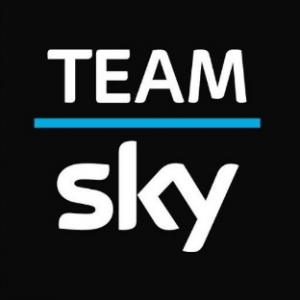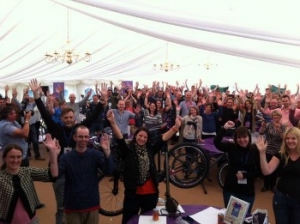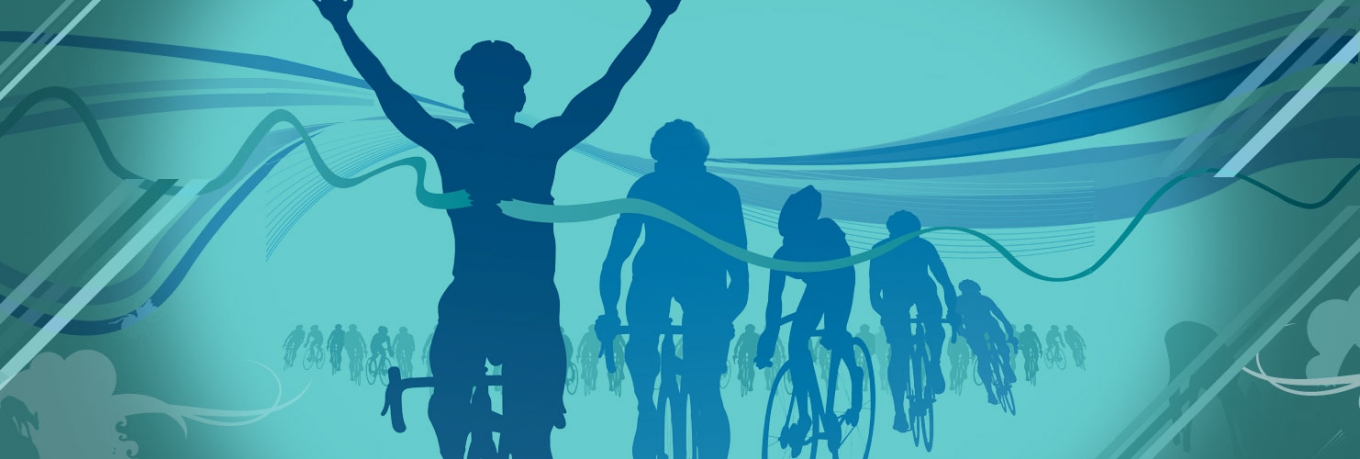A clear mission: “To win the Tour de France within five years”
That was the aim of Team Sky, the British professional cycling team that was formed in 2009. The team is based at the National Cycling Centre in Manchester, and is managed by British Cycling’s former performance director Sir Dave Brailsford.
 Team Sky achieved their goal in 2012 when sporting legend, Bradley Wiggins won the Tour de France, becoming the first British winner in its history, while fellow Briton Chris Froome finished as the runner up. Froome later went on to win the 2013 Tour de France, thereby achieving Team Sky’s aim twice over.
Team Sky achieved their goal in 2012 when sporting legend, Bradley Wiggins won the Tour de France, becoming the first British winner in its history, while fellow Briton Chris Froome finished as the runner up. Froome later went on to win the 2013 Tour de France, thereby achieving Team Sky’s aim twice over.
A clear, unifying direction
What we love so much (apart from all the winning) is the simplicity of that goal. There’s no fluff, no padding, no beating round the bush whatsoever. It’s not packed with jargon-heavy nonsense or vague ambiguities. It’s simple. It’s unifying. It articulates a real target, an ambition for the entire team to get behind and aspire to. It’s an action, it makes sense and it quantifies the goal.
Many organisations aren’t quite so successful at defining their objectives. Their mission statements often fail to outline clearly what the business is trying to do and employees just can’t get on board and believe. A well-crafted and well-communicated mission statement steers the ship and allows an organisation to truly define success.
Employees who understand and embrace this goal become engaged, motivated and emotionally attached to a sense of purpose.
Driving key business behaviours
 We worked with Nominet, one of the world’s leading Internet registry companies, to put together a high impact employee event. Nominet wanted to explore the behaviours that are important for the company’s future and bring them to life for their people.
We worked with Nominet, one of the world’s leading Internet registry companies, to put together a high impact employee event. Nominet wanted to explore the behaviours that are important for the company’s future and bring them to life for their people.
Nominet’s event focused on a specific challenge – a Charity Bike Build, a unique team building activity designed to engage, inspire and energise employees. The aim is for participants to gain the skills necessary to safely and competently build a bike together.
An inspiring boost
Delivering a super-charged dose of motivation, the event also featured a fascinating presentation from Fran Millar, Team Sky’s Head of Winning Behaviours. Fran set the scene perfectly for participants to take on the assembly of 14 bikes bound for two charities in Oxfordshire. Fran heads up the development programme for the 90-strong team to build on Team Sky’s success and provided an intriguing insight into the creation of a winning culture, based on clear objectives. She introduced Team Sky’s winning concept of marginal gains – the idea being that if you improved every area related to cycling by just one percent, then those small gains would add up to remarkable improvement. The power being in continual small wins and slow gains. It’s an effective philosophy that can be transferred to any industry.
Fran also explained how the team communicated their own winning behaviours and how these formed an integral part of the recruitment process, letting potential employees know exactly what would be required of them. It’s about having the right people on board, with the right mindset and focusing on the challenge at hand, together.
Everyone counts
A crucial part of Team Sky’s inclusive culture is about every single team member being a part of the success story – they’re all on that bike and they’re furiously pedalling together. In essence, whether you’re John from IT or Alison from Operations, and you’re asked…
‘What do you do?’ you can stand up and say, “I helped Team Sky win the Tour de France.”
With fresh focus provided by Fran’s inspiring words, Nominet employees did themselves proud, setting about their team task with fierce enthusiasm. The completed bikes were presented to local charities, Autism Family Support and young people from South & Vale Carers.
Looking to the future
So back to our mission and what happens when you achieve the dream of reaching that winning goal? You make a new one. On the fifth anniversary of the team’s launch, Sir Dave Brailsford commented, ‘Our mission for 2020 is very clear – for Team Sky to be indisputably and consistently the best cycling team in the world, and to be viewed as one of the very best sports teams in the world. We will do that by winning more races in the next five years than we did in the past five years.’
Final thoughts
A powerful mission statement builds a foundation, sets out the DNA of an organisation and points employees in the direction it intends to go. It delivers the ‘why’ clearly.
As with Team Sky’s inspiring aim, a mission statement must be clear, concise and compelling if it is to be effective.
For Sir Dave Brailsford, defining clear goals was simple, ‘When we first set out, we aimed to win the greatest bike race in the world, within five years, to do it with a British rider, and do it clean. And in doing so to inspire a million more people to take up cycling.
Our objectives could not have been clearer.’
Tweet us @AliveWithIdeas with your thoughts and experiences!
















